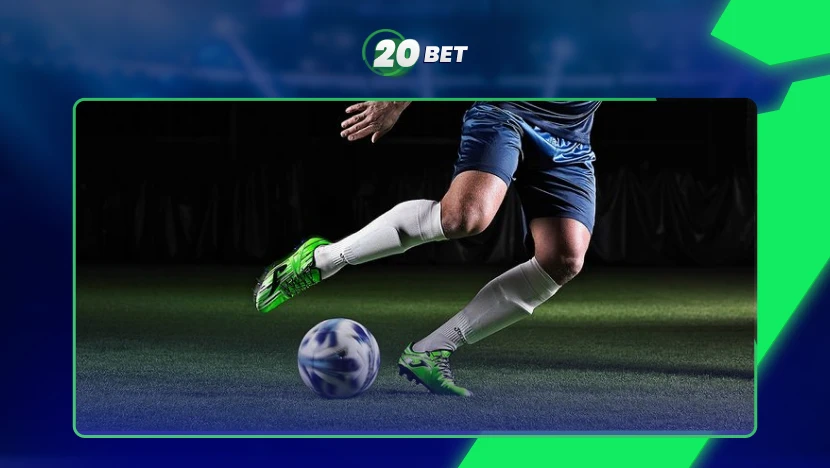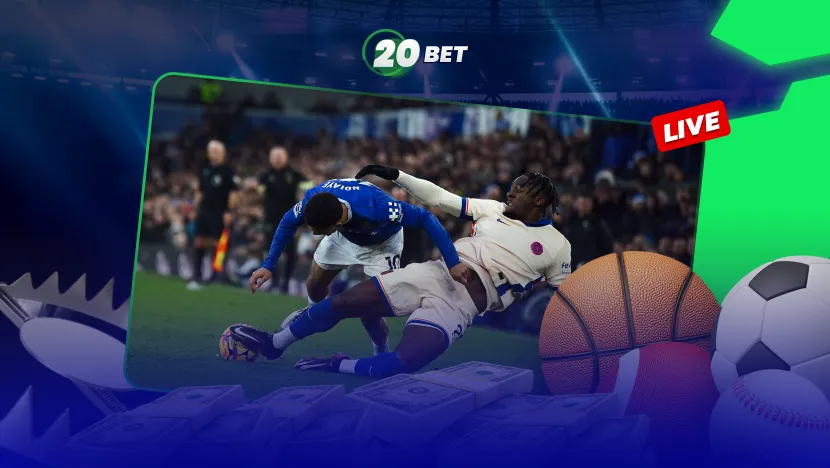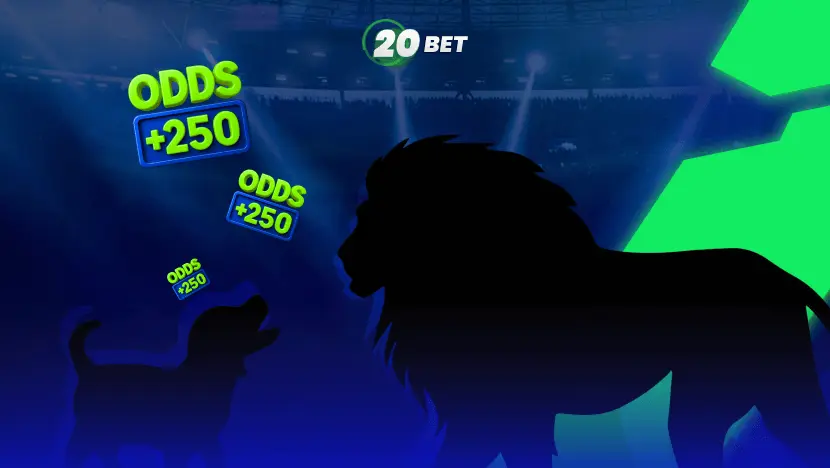Momentum in soccer refers to a brief period when one team dominates possession, wins duels, and forces the opponent back.
In a live feed, fans see the bar turn green and 20Bet odds adjust in seconds, but is that shift a real competitive edge or just a convenient story?
What Is Momentum in Soccer?
Physics defines momentum as mass times velocity, but in soccer, the term refers to something different – it’s a psychological shift that leads to a string of successful plays. This is why momentum is commonly used in sports commentary: it signals building pressure and the sense that a goal is coming.
The Psychological Theory Behind Momentum
According to sports psychology studies, momentum is fueled by:
- Sensory cues – the crowd gets louder, teammates start sprinting harder.
- Cognitive appraisal – players think, “We’re on top, keep pushing!”
- Emotional contagion – confidence spreads, and movement becomes more synchronized.
- Feedback loop – every won duel “confirms” dominance until one error snaps the chain.
This loop explains how momentum and impulse are used in sports talk: they wrap emotion, perception, and execution into a single, easy-to-understand concept.
What the Data Says: Is Momentum Statistically Real?
Two big studies tackle the question of whether momentum in sports is real:
| Study | Matches | Focus | Key Finding |
| Temporal Dynamics of Goal-Scoring (arXiv 2025) | 3,433 | Time between goals | Second goals cluster within 5 minutes, then level off by 10 |
| Hot-Hand Hypothesis in Soccer (Econ Bulletin 2023) | 4,056 | A five-minute window after a goal | Scoring team 10% more likely to score again within 5 minutes; no effect after 10 |
The clustering fades quickly, yet it rises above a pure-random model – evidence that something more than chance is at work.
Arguments That Momentum Is a Myth
- Tiny window, quick fade – goal rushes melt back to normal within ten minutes.
- Regression to the mean – shooting spikes glide toward long-term averages in the next attempt.
- Memory bias – fans remember the hot streaks but forget the countless fruitless spells.
In this view, the “green bar” on an attack momentum feed is just noise wearing a superhero cape.
Arguments Supporting Momentum in Soccer
- Goal clusters beat chance – both studies above find a five-minute surge that randomness can’t explain.
- Measurable effort spike – GPS data shows sprints and pressing intensity jump in the 60 seconds after a big tackle.
- Markets react – live odds on 20Bet shorten within seconds of a momentum spike; money votes that the wave matters.
So, while momentum in sports is a myth to some, believers see a fleeting but real gust that can carry a team a few lengths.
Case Studies: Famous Matches Examples Often Cited for Momentum
The strongest proofs come straight from the pitch. Each of the following iconic matches is a vivid example of momentum in sports, where one impulse can unleash a cascade of successful plays.
Liverpool 4-0 Barcelona (May 7, 2019)
Trent Alexander-Arnold’s famous “corner taken quickly” in the 79th minute helped Divock Origi find the back of the net and seal a 4-0 win for Liverpool that overturned Barça’s 3-0 first-leg lead. One spark triggered a tidal wave.
Tottenham 3-2 Ajax (May 8, 2019)
Lucas Moura’s first strike in the 55th minute ignited Spurs to victory. From the 70th minute on, Ajax failed to register a single shot. Moura’s 96th-minute goal sealed the comeback.
Manchester City 3-2 Aston Villa (May 22, 2022)
At 0-2 down in the 76th minute, Raheem Sterling’s burst set up Gundogan’s header. City added two more goals within five minutes to snatch the Premier League title.
Betting Implication
Live “attack momentum” bars on 20Bet move markets fast. A sudden green spike may shorten a favorite’s odds by 5-15%. Smart bettors:
- Confirm first – treat the spike as a hint. Is the next action still pressing?
- Flat stakes – keep each in-play wager to 0.5-1% of your bankroll.
- Exit quickly – if the spell is broken (e.g., by a goal kick, a VAR delay, or an injury), cash out or hedge.
That’s how momentum and impulse in sports can be incorporated into a disciplined trading playbook.
What Coaches and Players Say About Momentum
Top professionals acknowledge momentum in sport as a situational factor, not an all-powerful force. These quotes highlight that perspective:
- Jürgen Klopp (soccer): “Momentum is the most fragile flower on the planet.” Klopp points out that sometimes one error is all it takes to end a spell of dominance.
- Vince Lombardi (American football): “When you’ve got the momentum in a football game, that is a time to keep going and get it into the end zone.” Lombardi treats momentum as a brief window for precise execution.
- Sir Alex Ferguson (soccer): “We have got the momentum at the moment. We are winning games, which is important at this time of the season.” He highlights how sustaining a late-season winning run fuels momentum.
Responsible Gambling
Even a confirmed momentum in soccer doesn’t eliminate the unpredictability of the game. Stick to pre-defined stake sizes, follow a written bankroll plan, and avoid chasing losses. Gambling should remain entertainment, not a financial strategy.
Conclusion: Real or Myth?
Data shows that goal clusters and intensity spikes occur more often than random models predict, confirming that momentum in sports does exist, but only in short bursts.
Since the effect fades within minutes, it should be viewed as a temporary edge, not a decisive law. Coaches can leverage it for quick presses, and bettors can react with disciplined, low-risk plays, but treating momentum as a guarantee is misguided.
Momentum feels electric, but it never guarantees a result. Set limits, stick to a bankroll plan, and remember: exhilaration should never overrule sound judgment.
FAQs
Does momentum actually exist in soccer?








